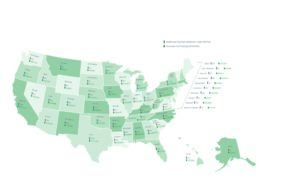This report analyzes the effectiveness of defined benefit (DB) pensions on teacher retention and productivity finds that pensions play a critical role in recruiting and retaining productive teachers.
This increases each school’s level of effectiveness, thereby benefiting students. Additionally, DB pensions save school districts money by reducing expensive teacher turnover costs. More specifically, the new study, Three Rs of Teacher Pension Plans: Recruitment, Retention, and Retirement, finds that:
- Teacher effectiveness increases with experience. Education policy literature finds that teacher productivity increases sharply within the first few years of teaching. Thus, the more retention that among mid- career teachers, the more that the average teacher productivity within a school will increase.
- The cost of teacher turnover is quite high, both in terms of financial cost and loss of productivity to the school district. Additionally, public school teachers turn over less than private school teachers, largely due to their compensation, including pension benefits.
- DB pension plans help to recruit high quality teachers, and to retain highly productive teachers longer, as compared with defined contribution (DC) individual retirement accounts.
- In 2003, DB pensions helped to retain an additional 22,000 teachers nationwide. Because longer tenured teachers are more effective teachers, the increased retention that DB pensions bring increases the overall quality of public education.
- Because the cost of teacher turnover is substantial, the retention effects of DB pension plans also save school districts money. In 2003, DB pensions saved school districts $273.2 million nationally in teacher turnover costs.
The study provides state-specific data including teacher turnover cost savings associated with pensions, as outlined in the map below. Click through for a larger image.
